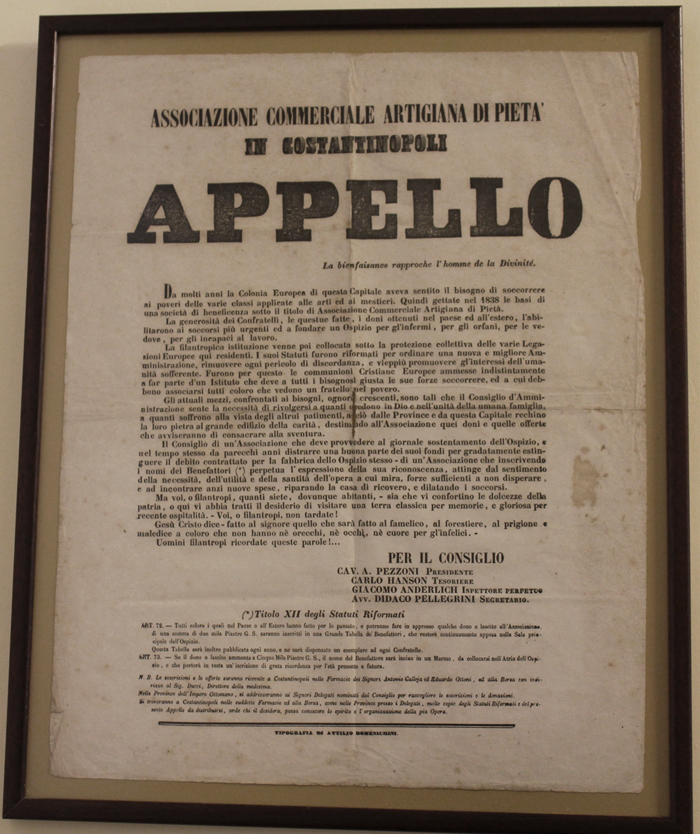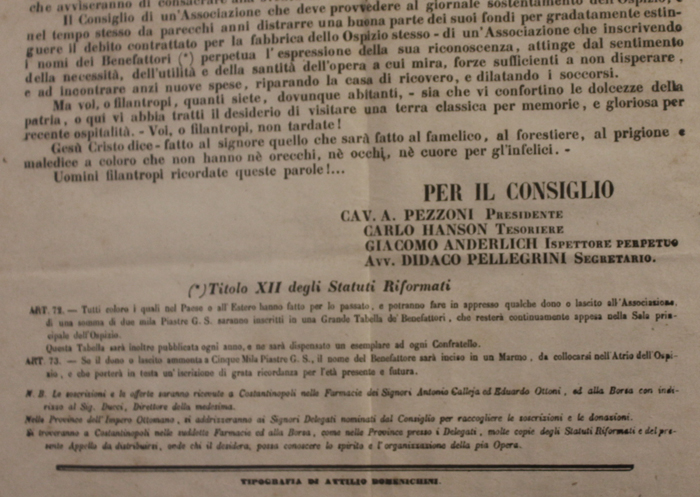
Ephemera
Artigiana appeal poster
Document outlining the appeal for donations and benefactors during the establishment stage of the Catholic old-people’s home of Artigiana (titled as a commecial association presumably to designate its independence from Church control) with the names of the committee outlined, displaying its multi-ethnic nature. The president appears to be an Italian nobleman by the name of Antonio Pezzoni who married in 1804 an Istanbul born Latin Levantine Sophia Mavromati. Carlo is the Italian version of the Anglo-Levantine Charles Hanson (1803-1874) who was a prominent banker for the Sultan in the city, was the treasurer. The ‘perpetual inspector’ was Giacomo Anderlich originally from Trieste and the Secretary the lawyer Didaco Pellegrini, almost certainly an Italian. This institution was founded in 1838 and presumably this appeal dates from that period. The initial benefactors included the Sultan Abdülmecit, the Habsburg Royal Family members and the Bavarian Patriarch.
The document outlines, among the aims of the association, its mission to provide help for individuals with a low income. Artigiana is described not only as a old-people’s home but also a place to welcome orphans, widows and invalid individuals.
Each benefactor’s name is granted a place on a large table displayed each year in the central room of Artigiana. Benefactors donating large sums (more than five thousand “piastre”s) will have their names carved on a marble plaque located in the atrium.
Donations can be done either through the bank (actually through the “Borsa”) - probably the informal early version of the Stock Exchange in which Levantines no doubt had a major stake - or via a pharmacy owned by Antonio Calleja and Eduardo Ottoni (the latter partner married in 1829 Tecla Calleja, so were thus related). Donations are collected also throughout the Empire by representatives of Artigiana.


